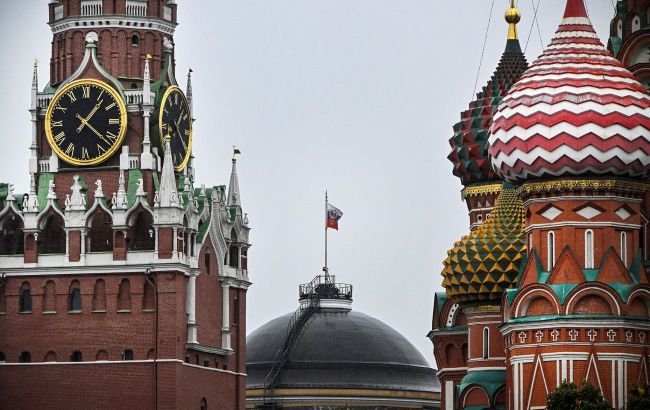Intelligence reveals Russia's budget deficit far exceeds official forecasts
 Photo: Russia's budget deficit exceeded the plan by four times (Getty Images)
Photo: Russia's budget deficit exceeded the plan by four times (Getty Images)
From January to July 2025, Russia's federal budget deficit grew to $61 billion (2.2% of GDP) — nearly four times higher than the planned $14.66 billion, according to the press center of the Foreign Intelligence Service.
According to intelligence, after the government's April revisions, the expected deficit was $47.4 billion, but actual figures exceeded even that forecast.
The decline in oil and gas revenues by 18.5% — down to $69 billion — resulted from the simultaneous strengthening of the ruble and a drop in global oil prices.
In addition, the budget revenue plan was not met: the average annual ruble exchange rate was 85.9 per dollar, significantly stronger than the 94.3 per dollar assumed in the budget.
Government spending over seven months increased by 20.8%, reaching $314.9 billion.
Non-oil and gas revenues grew by 14%, reaching $185 billion, but this was insufficient to offset losses from energy export revenues.
By the end of the year, the federal budget deficit could reach $75 billion.
The official forecast for Russia's GDP growth has been revised downward—from 2.5% to between 0.5% and 1%. These figures indicate significant economic challenges facing the country amid sanctions and global market instability.
It is worth recalling that sanctions have disrupted traditional supply routes to Kaliningrad. Maritime shipments have increased, but logistics are collapsing.
Since sanctions were imposed in 2022, Russia has substantially increased spending on cargo transit to the Kaliningrad region — an enclave with no land connection to the rest of the country.
Furthermore, the self-proclaimed president of Belarus, Alexander Lukashenko, recently gathered diplomats and tasked ambassadors with seeking new markets, negotiating deals, and promoting products.

